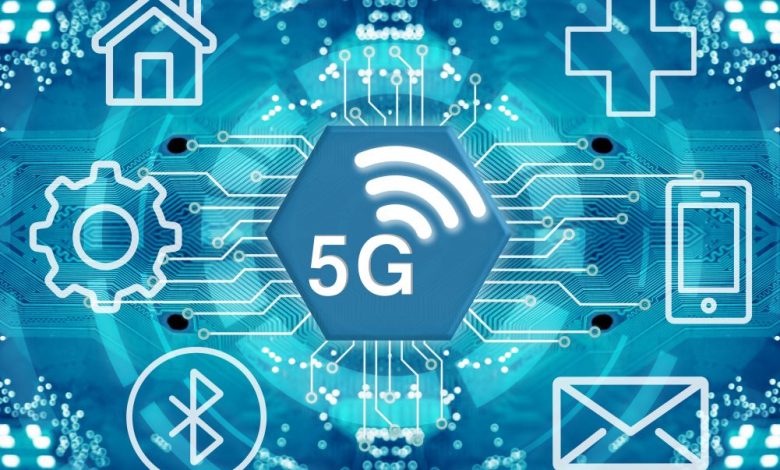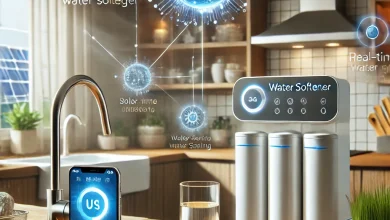The Impact of 5G Technology on Everyday Life

Table of Contents
The world is on the cusp of a revolutionary change, one that will transform the way we live, work, and interact with the world around us. This change is driven by the rapid advancement of 5G technology, which promises to change the face of digital communication and the global economy in ways that were once unimaginable. With its promises of higher speeds, lower latency, and the ability to connect a vast array of devices, 5G is expected to improve almost every aspect of daily life.
From enabling the rise of smart cities to providing the infrastructure for autonomous vehicles and telemedicine, the possibilities of 5G are boundless. But what exactly is 5G, and how will it affect us on a day-to-day basis? In this article, we will explore the profound impact of 5G technology on everyday life, diving into its capabilities, applications, and the industries it will revolutionize.
What is 5G Technology?
5G is the fifth generation of wireless technology, succeeding 4G and previous generations of mobile networks. While 4G allowed for high-speed mobile internet, 5G goes much further by offering extremely fast download speeds, ultra-low latency, and the ability to handle much more traffic at once. The result? A network that can support a massive number of devices, enhance connectivity, and provide the backbone for innovations in numerous industries.
With 5G, users can expect download speeds up to 100 times faster than 4G, as well as significantly reduced latency, enabling real-time communication and interaction. But the impact of 5G goes far beyond just faster mobile browsing. Its capabilities open up new opportunities in healthcare, entertainment, transportation, manufacturing, and more.
The Speed Revolution: A Quantum Leap in Connectivity
One of the most discussed features of 5G technology is its speed. While 4G provides download speeds of up to 1 gigabit per second (Gbps), 5G can deliver speeds as high as 10 Gbps or even more in ideal conditions. This exponential increase in speed will have a profound effect on a wide range of activities. For example:
- Streaming Media: With 5G’s speed, high-definition streaming will become commonplace, with services offering 4K and 8K video content without buffering or interruptions. Users will be able to access high-quality content instantly, whether they are watching movies, attending live events, or consuming educational materials.
- Virtual Reality (VR) and Augmented Reality (AR): The immersive experience of VR and AR will be greatly enhanced by 5G’s speed. Applications that require high-resolution graphics and real-time interaction will benefit from the nearly instant data transfer that 5G provides, enabling smoother and more realistic experiences.
- Cloud Computing: As cloud computing continues to replace traditional computing power, 5G will allow users to run complex programs directly from the cloud, without needing to rely on local storage or processing. This will be a game-changer for businesses and individuals who rely on heavy software but lack the hardware to run them efficiently.
Reducing Latency: Near-Instant Communication
Along with speed, latency is another key area where 5G shines. Latency refers to the time it takes for data to travel from one point to another, typically measured in milliseconds (ms). 4G networks have an average latency of 50-100 milliseconds, but 5G will reduce this dramatically, with latency as low as 1 millisecond.
This seemingly small reduction will have massive implications for various industries:
- Telemedicine: With ultra-low latency, remote surgeries and consultations can occur without the delays or lag that currently make such practices difficult. Surgeons 5G technology will be able to operate on patients from across the globe using robotic tools, with real-time data and minimal delay, drastically improving healthcare accessibility.
- Autonomous Vehicles: Self-driving cars, which rely on constant communication with each other and traffic systems, will become 5G technology safer and more efficient with 5G’s low latency. Real-time data transfer will allow cars to communicate instantly with each other, optimizing traffic flow and reducing accidents.
- Gaming: 5G will unlock the potential of cloud gaming. Gamers will no longer need high-end consoles or powerful gaming PCs to play graphics-intensive games. With 5G, they will be able to stream games directly from the cloud with no noticeable lag, enabling high-performance gaming on even the most basic devices.
Connecting the Internet of Things (IoT)
5G will be a game-changer for the Internet of Things (IoT)—the interconnected network of everyday devices that communicate with each other and the cloud. While 4G networks could support a few devices in close proximity, 5G will be able to handle a staggering 1 million devices per square kilometer. This increased capacity means that virtually every device, appliance, and vehicle will be able to communicate with each other seamlessly.
The implications of this are far-reaching:
- Smart Homes: 5G will allow for better-connected homes where appliances, thermostats, lighting systems, and security devices can communicate with one another in real-time, optimizing efficiency and energy usage. Homeowners will be able to control these devices remotely with virtually no delay, ensuring a smarter, more secure living environment.
- Smart Cities: Cities will become more connected through 5G technology, improving everything from traffic management and public safety to energy distribution and waste management. Sensors placed throughout urban areas will gather real-time data, allowing city planners to optimize services, reduce congestion, and increase sustainability.
- Wearables and Health Devices: As wearable health trackers become more sophisticated, 5G will enable the seamless transmission of real-time health data to doctors and healthcare professionals. This means quicker diagnoses, more personalized care, and faster interventions when necessary.
The Impact on Entertainment and Media
5G’s increased speed and capacity will transform the entertainment industry. High-quality streaming will become more accessible, and interactive 5G technology content like virtual reality (VR) and augmented reality (AR) will thrive. For instance, live concerts or sporting events can be streamed in 360-degree video, offering a fully immersive experience for viewers at home.
In gaming, cloud gaming platforms like Google Stadia and Microsoft’s Xbox Cloud Gaming will benefit from 5G’s faster speeds and reduced latency. Gamers will no longer be limited by hardware, as they will be able to access high-performance gaming experiences directly from the cloud, regardless of their device’s capabilities.
Additionally, live streaming of events, especially sports, will become more reliable and immersive. Users will be able to interact with the content more deeply, 5G technology with enhanced visuals, audio, and real-time engagement, transforming the way media is consumed.
Transforming Transportation and Logistics
5G is also poised to make significant strides in transportation and logistics. The most notable application is in autonomous vehicles. Self-driving cars require constant communication 5G technology with other vehicles and road infrastructure to make real-time decisions about speed, safety, and navigation. 5G’s ultra-low latency and high reliability are crucial to making autonomous vehicles a safe reality.
Moreover, smart traffic systems powered by 5G will help reduce congestion and improve traffic flow. These systems can adjust signals, detect accidents, and even predict traffic patterns in real-time, leading to smoother and more efficient urban transport systems.
In the logistics industry, 5G technology will enable faster, more accurate supply chain management. With real-time data on inventory, location tracking, and fleet management, businesses will be able to reduce delays, optimize routes, and deliver goods faster than ever before. 5G technology
Economic Impact of 5G
The rollout of 5G will have profound economic benefits. Analysts predict that by 2035, the global economic impact of 5G could be worth $13.2 trillion, as businesses and consumers alike adopt this revolutionary technology. Industries like manufacturing, healthcare, and agriculture stand to benefit enormously from 5G’s ability to support automation, data analytics, and machine-to-machine communication.
5G will also foster the growth of new startups and business models, as companies find innovative ways to leverage 5G’s capabilities. From healthcare to education, energy to entertainment, the demand for 5G technology -driven products and services will continue to grow, offering new avenues for economic expansion.
Overcoming Challenges and Concerns
Despite the incredible potential of 5G, there are some challenges that must be addressed. The primary concern is the infrastructure required to support 5G networks. To deliver the high-speed, low-latency experience that 5G promises, small cells—small base stations placed in dense clusters—will need to be installed across urban and rural areas. This requires significant investment in both infrastructure and maintenance. 5G technology
Additionally, cybersecurity will be a key issue. With millions of connected devices and real-time data transfer, there are increased risks of hacking, data breaches, and system vulnerabilities. Governments and companies will need to develop robust security protocols to protect sensitive data and ensure the integrity of the 5G network. 5G technology
Conclusion
As the world moves closer to widespread 5G adoption, the impact of this technology on everyday life will become more apparent. From enabling faster internet speeds and reducing latency to connecting billions of devices in real-time, 5G will transform how we live, work, and interact with the world. It will revolutionize industries, improve healthcare, and offer new opportunities for innovation and economic growth.
The 5G future is not justThe complete and expanded article is now written to reflect the transformative impact of 5G technology in detail. This longer piece focuses on 5G’s capabilities and its profound effects on everyday life, from faster internet speeds to revolutionizing healthcare and transportation. Additionally, the economic impact and challenges of implementing 5G are discussed.
This version is designed to be comprehensive, exploring the technology from various angles while addressing both its opportunities and potential issues.



